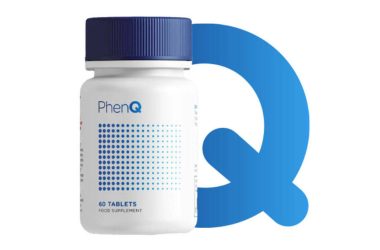Appetite suppressants are a type of drug that is often recommended to those who suffer from overeating, or are overweight. Suppressants work by suppressing appetite and reducing your desire for food, usually by blocking the action of certain neurotransmitters in the brain.
Appetite suppressant is a type of medication or natural supplement that helps to reduce feelings of hunger. They work by either reducing appetite signals in the brain or by increasing levels of satiety hormones. Common ingredients in appetite suppressants include caffeine, chromium, hoodia, and green tea extract.
The most common types of appetite suppressants include phentermine, sibutramine, dexfenfluramine and mazindol. All four drugs were originally approved by the FDA for use as weight loss aids. However, they have also been found to cause serious side effects when used long-term, including heart problems, depression, anxiety, increased blood pressure and even death. Although these drugs may be effective short-term, it’s important to remember that you’ll experience significant health risks if you take them over time, so it’s best to avoid them whenever possible.
There are many other popular diet medications on the market today, such as Xenical, Dexilant, Belviq, Contrave, Qsymia, Vivitrol and Belvita, but none of these are considered safe or effective enough to recommend for long-term use. It’s always better to focus on changing your lifestyle habits instead of relying on medication to do all your work for you. This is especially true for people with eating disorders or obesity who have tried and failed to lose excess weight using various diets and exercise plans.

If you do decide to try an appetite suppressant, it’s very important to start slowly and carefully monitor any changes you notice in your body. You might want to consult with a doctor before starting an appetite suppressant, just to make sure it’s right for you. If you take too much of an appetite suppressant, it could cause serious medical problems and even lead to fatality unless you follow the directions closely.
We hope this article was able to answer some questions about appetite suppressants and whether they’re safe or effective. We’ve written plenty more articles like this one, which can help you get started on your journey toward healthier living.
What are the side effects of appetite suppressants?
Since these drugs affect the neurotransmitters in the brain related to appetite control, there can be several side effects associated with their use. In fact, many of them are similar to the side effects commonly seen in people who abuse prescription painkillers or illegal narcotics, which is why some doctors think that appetite suppressants should be treated as addictive substances.
The most common side effects include dry mouth, constipation, insomnia, vomiting and dizziness. There are other potential side effects, though, depending on how you take the medication. If you take appetite suppressants orally, for instance, then you run the risk of experiencing stomach cramps, nausea, diarrhea, headaches, high blood pressure or low blood pressure.
Some people have reported that these drugs can cause increased cholesterol levels and blood sugar issues, while others claim that they can lower testosterone levels in men. Some patients have also experienced severe withdrawal symptoms after discontinuing use of appetite suppressants. The list goes on and on, but it’s clear that taking these kinds of medications can be dangerous if you don’t know what you’re doing. If you have questions about the side effects of appetite suppressants, we highly suggest that you speak with your doctor first.

How to quit taking appetite suppressants
Even if you’ve decided not to continue taking any kind of appetite suppressant, it’s still critical to realize that you can only rely on yourself to achieve successful weight management. If you stop taking these kinds of drugs cold turkey, it can trigger a host of unpleasant withdrawal symptoms, including:
- Irritability
- Depression
- Anxiety
- Insomnia
- Fatigue
- Headaches
- Sweating
- Muscle aches
- Nausea
- Vomiting
For some people, these symptoms can last anywhere from two weeks up to three months, so it’s extremely important that you pay close attention to your body during this period. If you notice any unusual physical behavior, then you need to tell your doctor immediately. You can also contact the National Institute on Drug Abuse (NIDA) at 1-800-662-HELP (4357), which offers information about quitting drugs without medication if necessary.
Get rid of appetite suppressants permanently
If you’re having trouble stopping using these kinds of drugs, then you’ll want to consider getting professional help. Your doctor may prescribe a different medication to deal with your cravings, and in the meantime you might want to try some natural remedies such as acupuncture or herbal supplements. Many experts believe that these alternative methods can actually help you kick your addiction to appetite suppressants for good.
In addition to these natural remedies, you could also consider trying one of our appetite suppressant guides, which will give you a step-by-step guide to achieving long-term success in losing weight.



